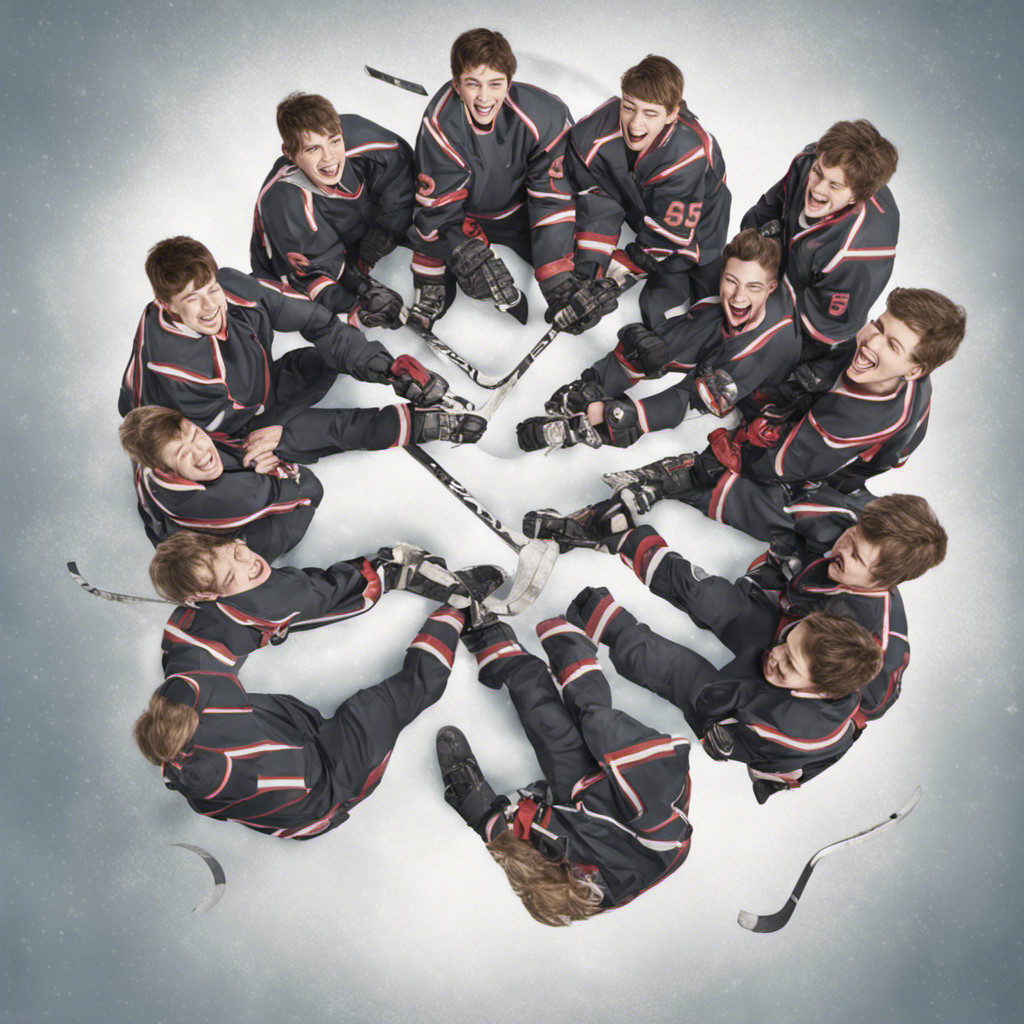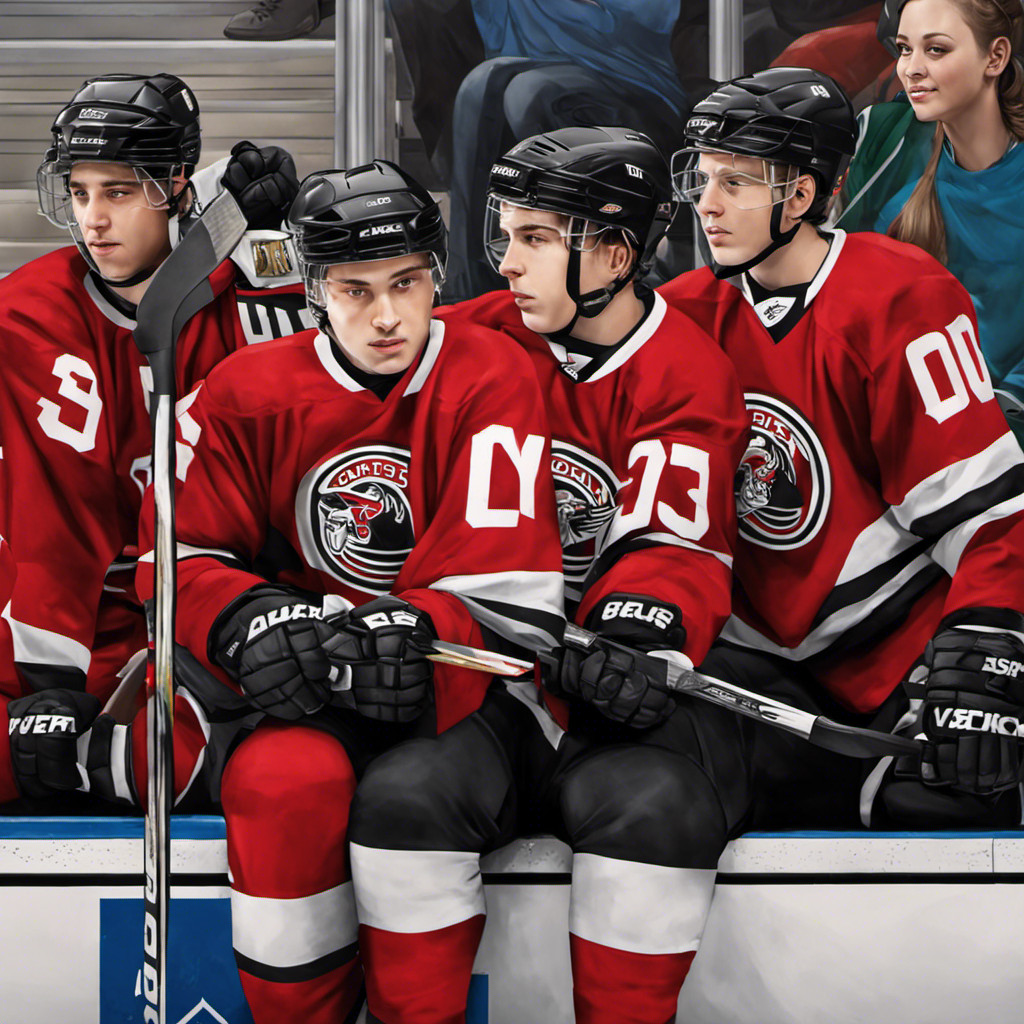We Don’t Live in a Hockey Vacuum

While a whole bunch of hockey events have inspired this post, I can assure my many on-line friends that this has as much to do with everyday life as it does my sport.
Actually, the seeds for this post — and its title — sprouted not long ago when I got the sense that a hockey dad was advising his son wrongly.
Understand that the boy plays a “team” sport. Know what I mean? And what I thought I heard the dad saying was that his son should pretty much forget his coaches’ advice. Moreover, the hockey dad seemed to be advising his boy to sorta go through the motions with his team, and then get his training elsewhere.
Ya, that’s when I first arrived at the idea that team players don’t function in a bubble, a vacuum, or whatever.
Now, as many readers know, I’m really into social media — from Twitter to Facebook to the new MeWe. I’ve also more recently become pretty active over at LinkedIn. And a recent question asked by a LinkedIn member coach had to do with one of her goaltenders suddenly requesting to move from that position to play defense. ???
Now, I don’t want to go into all the ramifications such a move would cause, but I do need to say that it would cause a whole bunch. You don’t have to know hockey either, to appreciate that such a move would create a void in one place, perhaps too many bodies in another, and it most likely might totally disrupt the team chemistry. Said yet another way, that player could have made such a request long before team tryouts, but to do it once the team was picked would affect the coach’s plans as well as most teammates. And, might we say, that that player — and his or her family — should realize that they don’t live in a dawgoned vacuum?
As an aside here, perhaps a quarter century ago I coached an extremely talented young hockey player (emphasis on “extremely”). If there was a problem, he tended to be moody, with this sometimes affecting his performance and those around him. He was a great kid, but… I soon discovered that he was also extremely talented in other areas of his life, including being exceptionally bright, and an awesome artist. Interestingly, perhaps, he also dabbled in another sport that was not team related, and he began climbing the ladder there as well. Anyway, he ultimately actually made a name for himself in the other sport, and I suspect that his move to train and compete as a soloist was the best decision he ever made. If you get my drift here, he was likely to struggle if he kept working within a team sport, but he did find a place where he could actually function within somewhat of a vacuum.

Yet another very related story stems from a telephone conversation I had with another coach just a few days back. He was mentioning how surprised he was that a given hockey mom was kind of a pain in the butt. As he explained it, her dad was a fairly well known coach, so he thought she would be a model hockey parent. Hmmmmm…
I told the other coach that I not only understood what he was saying, but that I’d seen numerous similar examples of this in my 40-plus years of dealing with teams and other hockey programs.
Whether I have the answer to this is debatable, for sure. However, I’ve noticed that my problems have occurred only with daughters of coaches, and not the sons. ??? How — or why — should this be?
My only (slightly educated) guess would be the frame of reference within which two siblings might hear things mentioned around the dinner table, wherever. In other words, it’s more than likely that the sons had experienced the lockerroom scenes — for real, they’ve been teammates, they’ve spilled some blood, sweat and tears on a battlefield, they’ve been beaten on some by coaches, and they’ve had their mouths smashed by opponents. And, from my totally old fashion, sexist perspective (because I’m grandfathered in that area — LOL), most daughters have not had such experiences. So again, I think two youngsters overhearing their dad’s war stories could hear two very, very different things.
And the gist of that discussion with the other coach — about the pain-the-in-the-butt hockey mom — had everything in the world to do with this idea about functioning or not functioning within a bubble. Or, in my friend’s case, it had everything to do with whether that hockey mom truly understood what it’s like to be part of a team.

Now, to expand further on that last statement, let me air what is commonly accepted around the hockey rinks, in that a kid’s attitude is very much a reflection of his or her mom’s and dad’s. Truly, parents are not usually able to hide their own opinions very well from their kids, and those attitudes — be they great or not so — always seem to find their way into a team sport’s lockerroom — in the way the son or daughter interacts with coaches as well as with teammates.
I don’t doubt some parents would like to argue the above. Ha. Dream as you wish, but ask a friend, ask a coach, ask anyone.
One of the tough parts to all this is to hear a coach say something to the effect that, “He really is a good kid, but…” Ya, the “but” part has to do with the poor kid still being influenced by a wayward parent.
No matter where I coached over all these years, the Negative Nellies (or Normans) tend to jump right out at me, while other kids and parents are seemingly so passive one might never get to know their true feelings. The more I get to know folks, though, the more I’m positive each kids’ coachability will be a refection of his or her parents’ attitudes.

And here’s the good or bad part to the latter… Coaches in a player’s past are always being contacted for a reference. Oh, I’m not talking about the formal kind, but we are constantly stopped at a rink, emailed or called to answer questions about someone who previously played for us. One problem folks have to realize in this regard is that a coach’s reputation goes on the line with every single one of those conversations. In my case, I hope I’ve earned a rep for being truthful, and I’m not about to toss that all away to lie about a given kid — whether my opinion of him or her is good, bad or indifferent. AND, believe it or not, other coaches always seem to get around to asking about the parents. Why? Because the kid and his or her parents are always a package deal. So, if a reader is still resisting the belief that his or her own actions and attitudes reflect on their youngster, it might be time to panic. The new team — if it is in fact a team, isn’t a collection of players living in separate bubbles. And what the future coach is looking for are all the right parts — skill-wise and attitude-wise — to act as one.
As I suggested from the start, though, the idea that we don’t function in a vacuum has as much to do with life as it does taking part in a team sport. Whether we like it or not, we’re all a part of our society, most of us work in an office or within a crew that either functions smoothly and peacefully or doesn’t. We’re neighbors, some of us are students within a group of other students, and some of us engage in some sort of a club activity. No matter, it’s hard in this day and age to do much of anything that doesn’t affect others.
No, we don’t live in a vacuum, and I’m going to have to do a better job of reminding myself about that. So should parents, however, so that their youngsters get to enjoy the awesome experiences of being part of all the groups in their future.